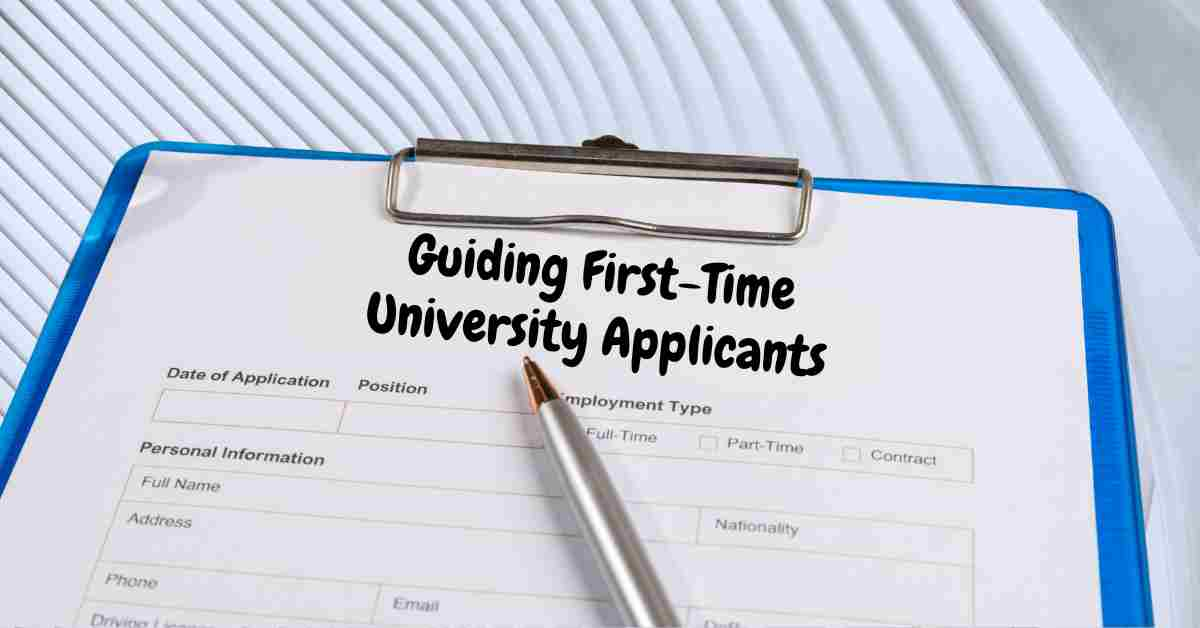info@subilrecruiters.com

How to support university first time applicants
Starting a university application for the first time can feel confusing. Many students describe it as stepping into the unknown. They often ask questions about deadlines, personal statements, or which course to choose.
Parents, teachers, and advisers also want to help but may feel unsure about the best way. The good news is that support does not need to be complicated. With clear steps, first-time applicants can feel calm, confident, and ready.
This article shows how to support first-time applicants. It explains what parents and teachers can do, and it also gives advice directly to students.
Understand the challenges first time applicants face
Applying to university is a major life step. For many students, it is the first big decision they make alone.
Excitement often mixes with stress. Applicants may worry about entry grades, struggle with online forms, or feel unsure about course choices. These worries are normal. But they feel heavier when the student feels unsupported.
Parents, teachers, and advisers can help by breaking the process into small, simple steps. They can also remind students that mistakes are part of learning.
Start the conversation early
Support works best when it starts early. Parents and teachers can talk to applicants about their interests, strengths, and goals.
These chats give students space to reflect without pressure. They also create time to explore courses and options at a steady pace. Starting early means fewer last-minute choices and less stress.
Explore courses and universities together
Choosing a course is not easy. Exploring options together makes it less stressful.
Visiting open days or joining online tours helps students see what feels right. It is not only about entry grades. Teaching styles, student support, and campus life all matter too.
Encourage students to ask questions, even small ones. e choices. Exploring courses and universities together helps applicants feel less isolated. It reassures them that the responsibility is shared and that guidance is available.
Understand the application timeline
University applications have strict deadlines. Missing one of these deadlines can close doors.
Breaking the process into simple tasks makes it easier to manage. A checklist can include choosing courses, writing a personal statement, requesting references, and sending the application.
Most universities set their main deadline in mid-January. Marking dates on a calendar or using phone reminders helps avoid last-minute stress.
Guide them through the steps
Applicants feel calmer when they know what comes next. Parents, teachers, and advisers can guide them step by step:
- Research courses and universities early.
- Gather documents like transcripts, test results, and references.
- Draft, edit, and refine the personal statement.
- Complete the online form with care.
- Pay any fees if required.
- Submit the form before the deadline.
- Track the application online.
Each small step builds progress and reduces pressure.

Support with personal statements
The personal statement is often the hardest part. Many applicants struggle to balance achievements with honest self-expression.
Teachers in sixth forms and colleges are great resources here. They have read many statements and can suggest improvements. Their advice on style and course fit is often very helpful.
Simple, clear language is best. Students should avoid clichés and complicated words. Reviewing drafts with teachers, parents, or advisers makes the statement stronger each time.
Help with references
References carry weight in applications. Teachers or employers who know the student well can give strong support.
Applicants should request references early. Asking weeks before the deadline shows respect and avoids delays. Teachers in sixth forms and colleges are usually ready to help with this part.
Keep track of key dates
Deadlines are fixed. Missing them can mean losing the chance to apply.
Students should track:
- Application deadlines.
- Reference deadlines.
- Scholarship deadlines.
- Interviews or test dates.
These days, tools such as planners, calendars, or phone reminders are simple but very effective.
Prepare for interviews and tests
Some courses require interviews, auditions, or tests. These can be scary for first-time applicants.
Practice makes them less stressful. Applicants can prepare by answering common questions, practising with teachers, or role-playing with friends.
Remind them that interviews are not traps. They are a chance to show passion and motivation.
Explain what happens after submission
Waiting can be difficult. Students often feel uncertain about what comes next.
Explaining the outcomes helps. Applicants may get conditional offers, unconditional offers, interviews, or waiting list places.
Each has its own next step, like meeting grade requirements or replying by a deadline. Knowing this in advance reduces anxiety.
Guide them through financial planning
Money is a key part of planning. Tuition fees, loans, and living costs can all feel overwhelming.
Parents and advisers can guide applicants to trusted resources. These include student finance offices, scholarship listings, and budgeting tools. With planning, students can feel secure about their finances.

Talk about life skills beyond the form
University is not only about studying. Daily life skills also matter.
Students who can budget, cook simple meals, and manage their space feel more independent. Practising these skills before the term starts makes the transition smoother.
Offer emotional support
Behind every form is a person with dreams and fears. Support means more than paperwork.
Encouraging words, patient listening, and small celebrations all help. Applicants who feel believed in are more likely to keep going when it feels tough.
Make use of available resources
Many resources are already within reach. Sixth form and college teachers can give feedback on personal statements and course choices.
Official portals, student advice centres, and planning templates also make the process easier. Using these trusted resources saves time and reduces stress.
Common mistakes to avoid
Some mistakes are simple but serious:
- Leaving the application until the last minute.
- Submitting a vague or generic personal statement.
- Forgetting to check spelling or details.
- Requesting references too late.
- Ignoring back up options.
Awareness of these mistakes helps students avoid them.
Advice for applicants
If you are applying for the first time, take it step by step. You do not need to know everything now.
Talk to your teachers about your course choices and personal statement. Use planners to stay on top of dates. Ask for help when needed.
Most importantly, trust yourself. This is the start of an exciting new journey.
Conclusion
Supporting first-time applicants is about more than forms and deadlines. It is about clear guidance, emotional support, and encouragement.
With the right help, the process feels less stressful and more rewarding. Each successful application marks the start of both academic growth and personal independence.
You may also want to consider this article.